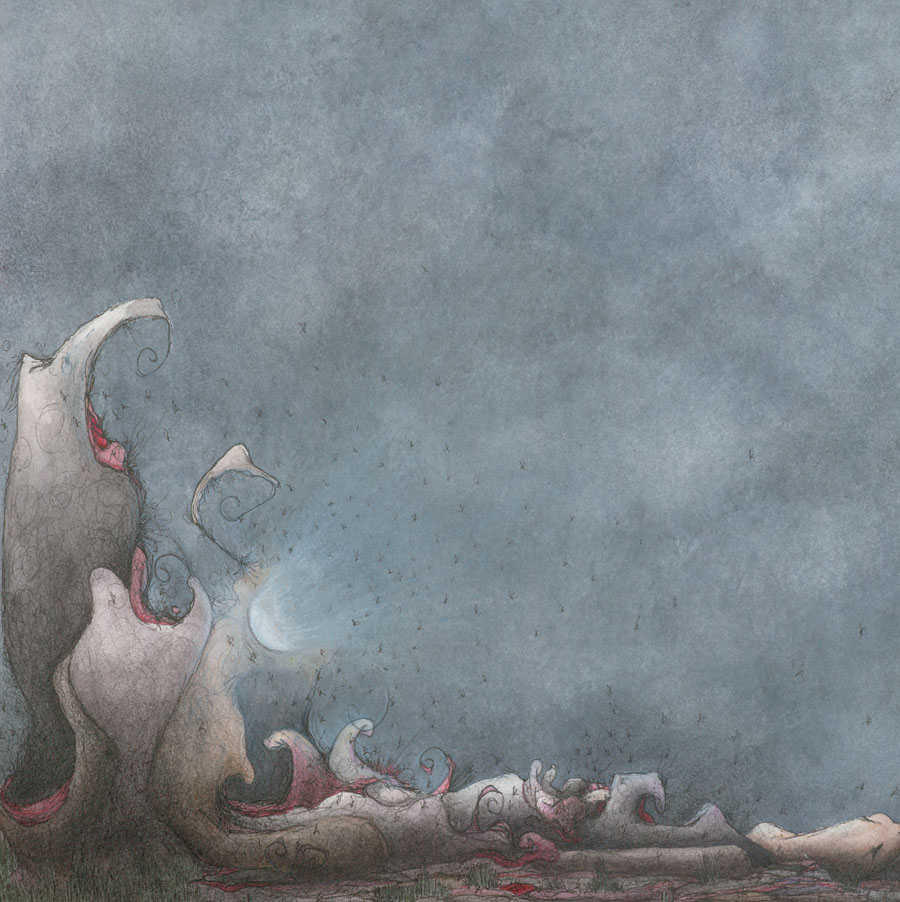 The first thing I noticed about this album is the cover art - a brilliant job by Jeannie Lynn Paske. It captures sort of the essence of this EP, which is a rare accomplishment for the cover of an album.
The first thing I noticed about this album is the cover art - a brilliant job by Jeannie Lynn Paske. It captures sort of the essence of this EP, which is a rare accomplishment for the cover of an album.The music is strictly solo piano, which somewhat melds modern post-rock leanings with minimalist classical ideas. Philip Glass was obviously a huge influence on this album.
It opens with a piece reminiscent of Mae's prologue to The Everglow. The next song carries this on, as well. From there it goes into darker territory, with the splendid "Perfect Neglect in a Field of Statues", which explores more emotionally driven sentiments. "Nepenthe" adds more dissonance to the formula than we've seen earlier on the album. "In a Sense" parallels the second track, "Genius and the Thieves" in terms of chord progression but augments the ideas and contemplates them more. Moving us back toward resolution is "The Well-Meaning Professor", which builds slowly over seven and a half minutes toward a beautiful climax. A ten-second break between the tracks lets you absorb it, before restating the thesis of the album in "An Accidental Memory in the Case of Death". All in all, a good EP, but it never evolves enough to fully hold your attention.
3.9 / 5





2 comments:
nice, but what is "the essence of this EP?" You sure say a lot about something that you don't tell us anything about... now I'm curious.
I got Eluvium's Copia earlier this year. I think I agree with your conclusion about the EP, and I think it applies to Eluvium's other work too. Copia is one of those instrumentals I always see when browsing my iTunes library, and think, "Oh, I should listen to that", and then pass it by and play Max Richter or Sigur Ros. It's not to say it's poorly made, it's just not gripping. Eluvium was actually my soundtrack in England all summer, for when I'd be dozing off on a long train ride.
Nice to see your thoughts in blog form again! What's up with you nowadays?
Post a Comment